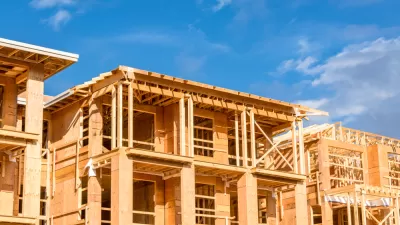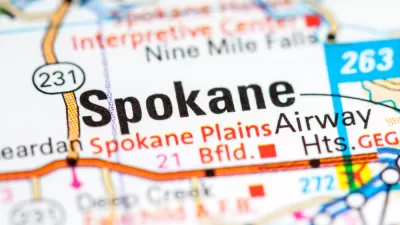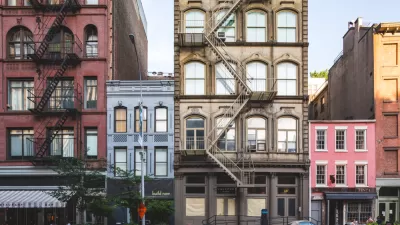An in-depth look into the political controversies stirred up in the Boston neighborhood of Jamaica Plain as a result of a proposed, density-adding zoning plan.
"Boston officials this week are set to approve new zoning rules for a section of Jamaica Plain from Egleston Square to Forest Hills, bringing new growth and affordable housing to a neighborhood that many residents say needs both," according to an article by Tim Logan and Shelby Grebbin.
But there's a catch: the plan has critics on both sides of the proposal. "Developers and their allies worry that aggressive requirements for low-cost units make it too expensive to build, while a group of vocal protesters argue the opposite, that the city hasn’t gone far enough on affordable housing," according to Logan and Grebbin.
The article highlights the proposed plan as a case study of conflicting dynamics at work in Boston and other cities all over the country: the need for more housing, especially affordable housing, and the desire to preserve neighborhoods for the communities already living there.
The specifics of the Jamaica Plain experience, which are detailed in the article with infographics and testimonials, will also be helpful as the city gears up for similar rezonings in the neighborhoods of Roxbury and Dorchester.
FULL STORY: Housing plan brings growing pains to Jamaica Plain

Americans May Be Stuck — But Why?
Americans are moving a lot less than they once did, and that is a problem. While Yoni Applebaum, in his highly-publicized article Stuck, gets the reasons badly wrong, it's still important to ask: why are we moving so much less than before?

Using Old Oil and Gas Wells for Green Energy Storage
Penn State researchers have found that repurposing abandoned oil and gas wells for geothermal-assisted compressed-air energy storage can boost efficiency, reduce environmental risks, and support clean energy and job transitions.

Placekeeping: Setting a New Precedent for City Planners
How a preservation-based approach to redevelopment and urban design can prevent displacement and honor legacy communities.

San Francisco’s Muni Ridership Grew in 2024
The system saw its highest ridership since before the Covid-19 pandemic, but faces a severe budget shortage in the coming year.

Colorado Lawmakers Move to Protect BRT Funding
In the face of potential federal funding cuts, CDOT leaders reasserted their commitment to planned bus rapid transit projects.

Safe Streets Funding in Jeopardy
The Trump administration is specifically targeting bike infrastructure and other road safety projects in its funding cuts.
Urban Design for Planners 1: Software Tools
This six-course series explores essential urban design concepts using open source software and equips planners with the tools they need to participate fully in the urban design process.
Planning for Universal Design
Learn the tools for implementing Universal Design in planning regulations.
Heyer Gruel & Associates PA
City of Moreno Valley
Institute for Housing and Urban Development Studies (IHS)
City of Grandview
Harvard GSD Executive Education
Salt Lake City
NYU Wagner Graduate School of Public Service
City of Cambridge, Maryland





























